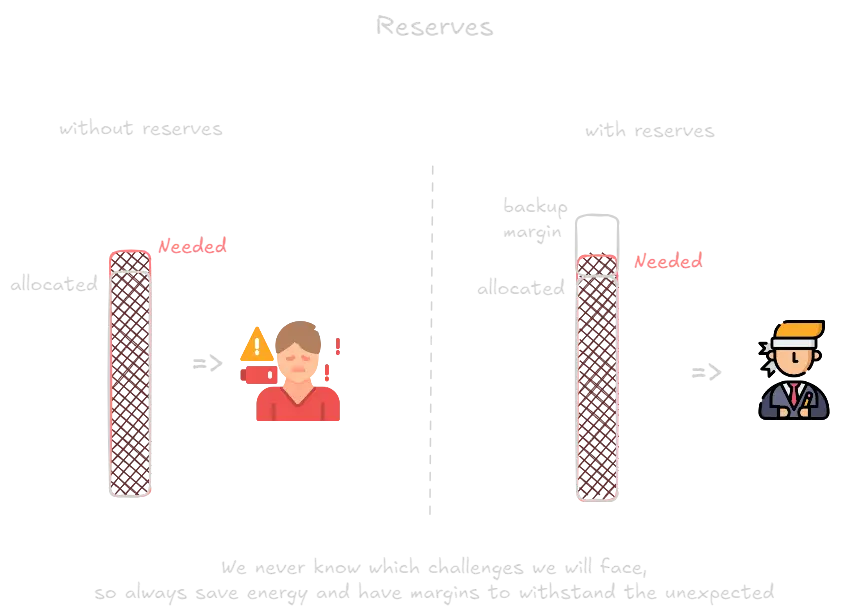Reserves
Notes
Despite our tendency for Optimization and control, we have to remember that life is unpredictable. Even with the best intensions, it's hard to plan and predict how the future will turn out, especially when we are bad at it.
Therefore, whenever we plan for something, we should have reserves and buffers to protect us from the risk of randomness. Adding buffers requires Humility, we have to acknowledge that we might be wrong or that we would encounter situations that we can't easily solve. Reserves increase our level of Flexability because we can use these buffers based on what we need most in each situation, without having it already locked for something else. Similarly, it reduces the chance of Exhaustion because when we feel overwhelmed, we can always use these buffers to recharge.
In most cases, reserves are for abstract resources such as time and energy. If we think a project will take x amount of time, we should plan for x + buffer. Similarly with our financial situation, creating a budget that leaves no room for unexpected expenditures is a recipe for disaster.
Some reserves are physical - like backup phone, digital storage. Some are abstract like income sources. Note that it is not needed to use the backup to gain its benefits, it's mere existence is enough for the sense of tranquility, like a reversed threat. Reserves don't have to be a perfect replacement, but at least a sufficient solution until a true alternative can arrive, making it more like emergency supply.
When it comes to physical reserves, consider how much to have based on:
- Value - how meaningful it is to you
- Availability - how hard it is to get another one; price, time, scarcity
- Storage - how cumbersome is it to store this item
- Decay - does it lose its value even used/unused? Do better alternatives come up quickly?
Visual

Overview
🔼Topic:: Resource management (Map) 🔼Topic:: Time Management (Map) Origin:: 🔗Link::